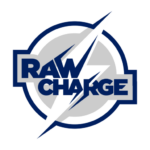Alec Brownscombe of Maple Leafs Hot Stove interviewed Jason Smith, Kelowna Rockets head coach, about newest Tampa Bay Lightning draftee Cal Foote season yesterday at the 2017 NHL Entry Draft. He was kind enough to let us publish his interview.
Brownscombe: Scouts seem to say he was playing top pair against good players pretty much since he entered the WHL. What makes him effective shutting down good players?
Jason Smith: I can’t really speak to last year, but this past season, he played big minutes against top players on the opposing team on a nightly basis and had a lot of success. His hockey IQ is at a real high level for a junior player. He sees the ice well, can read plays, and is not just puck focused. He has vision into the play where he can see the next play coming, which allows him, a lot of the time, to cut the play off and rely on his positioning and his footwork and his stick to be a shutdown defender.
Brownscombe: Scouts kick around the words heavy feet with him. What do you make of it? His top gear looks pretty good; how are his starts/stops, edgework and lateral agility?
Smith: I think he’s an efficient skater. It’s something that he works at and is continuing to work at. As he gets stronger and catches up with his body, he’ll become a very good skater. I think he moves well enough and sees the game well enough that I don’t think his feet will be any factor in him playing and having success at the next level. There are elite skaters, there are good skaters, and there are bad skaters. I would say he’s a good skater. He’s not elite, but he’s not, by any means, slow of foot or bad.
Brownscombe: He quarterbacks your power play as well. He’s not necessarily flashy in that role but scouts mention that he’s smart and gets pucks through. Is that a fair description?
Smith: He’s got a real good shot, but he, as I said earlier, has a vision for the game where he can see the passing lanes and complete the pass. He does have an elite-level shot from the blue line, which is obviously positive. Anybody that can get the puck to the net and deliver the puck on target from the blue line is a real factor in the game given there are so many players trying to get into the shot lanes nowadays to block shots. It’s a structural thing defensively to be in the lane to block shots. If you can get the puck on the blue line and put it on net, you’re doing things the right way.
Brownscombe: I’ve got ask the question: You played in the same conference as Adam for years. How do they compare? Perhaps more interestingly, how do they differ?
Smith: They’re very similar with their competitiveness and their knowledge of the game, which is a huge factor in having success. Cal’s game will grow and as he matures he will become more of a physical player. Adam had very good hockey IQ and was a fierce competitor. I think Cal has got more offensive upside than what Adam probably did. They’re both right-handers, and they both defend really well. Adam was obviously a really important player in the league for a long time and I think Cal will be the same.
Brownscombe: What advantages does a kid like Cal have as the son of an NHL player, growing up in and around NHL dressing rooms and with a resource like his father available to him as he’s developed? How does that help him now that he’s going through the draft process?
Smith: The biggest thing is you’re brought up in the culture of being a professional athlete. You’re around and you see the commitment and the work ethic that’s put in on a regular basis by, in Cal’s situation, his dad. They’re accustomed to knowing the work that is put in in the summer and the day-to-day routine of what you go through. That’s one of the things — he’s very pro-ready and very mature that way going through this process. He never gets overly amped up too high and he never gets down when things don’t go his way. He’s on an even keel, and I think that’s part of having lived with the life of being the son of a professional player. You really learn and watch and see the different ways people go about things.
Brownscombe: Given his intelligence and physically maturity, is he one of the more pro ready guys in your league?
Smith: I think that’s all a part of the process depending on the organization you’re with and the route they take developing their players. Being a young defenceman advancing and playing in the national league at a young age is difficult; the more time you have to season and hone your skills and develop is going to give you the best chance to have success at that next level. I think he’s got an NHL hockey IQ and his skills and his growth and development continue to get better.

